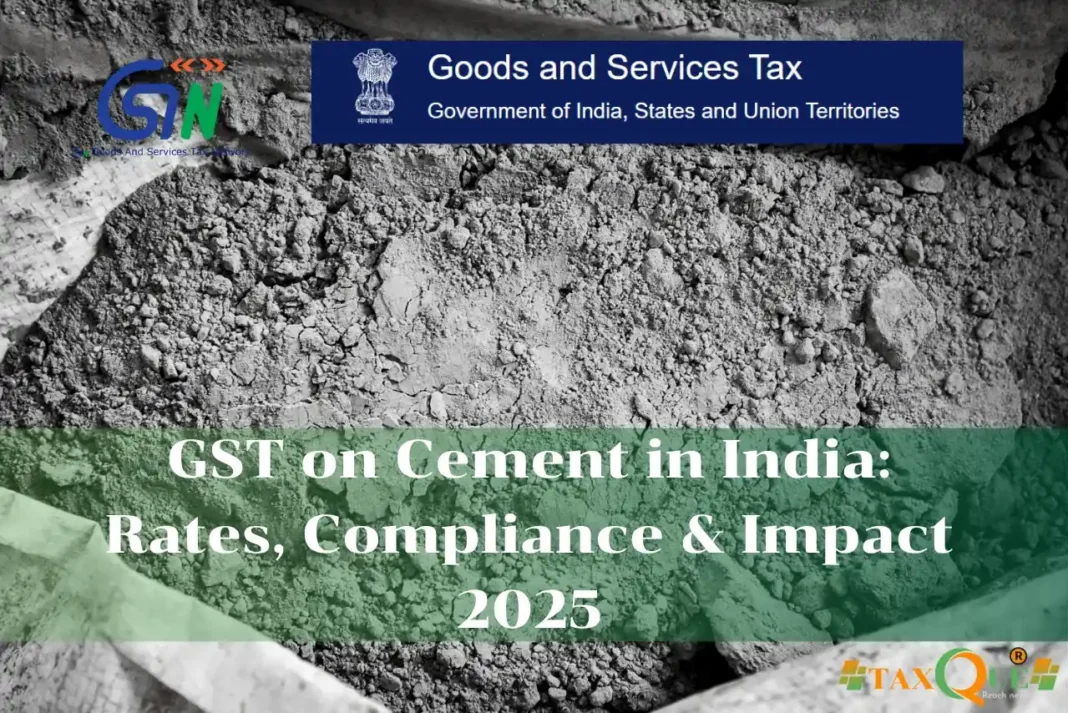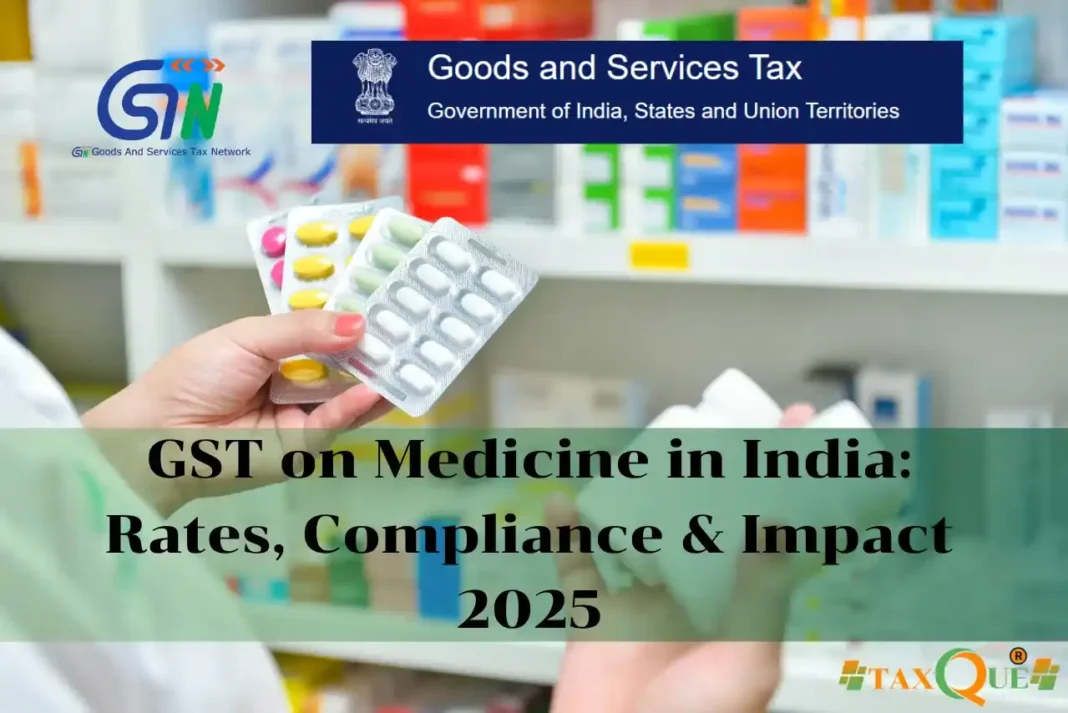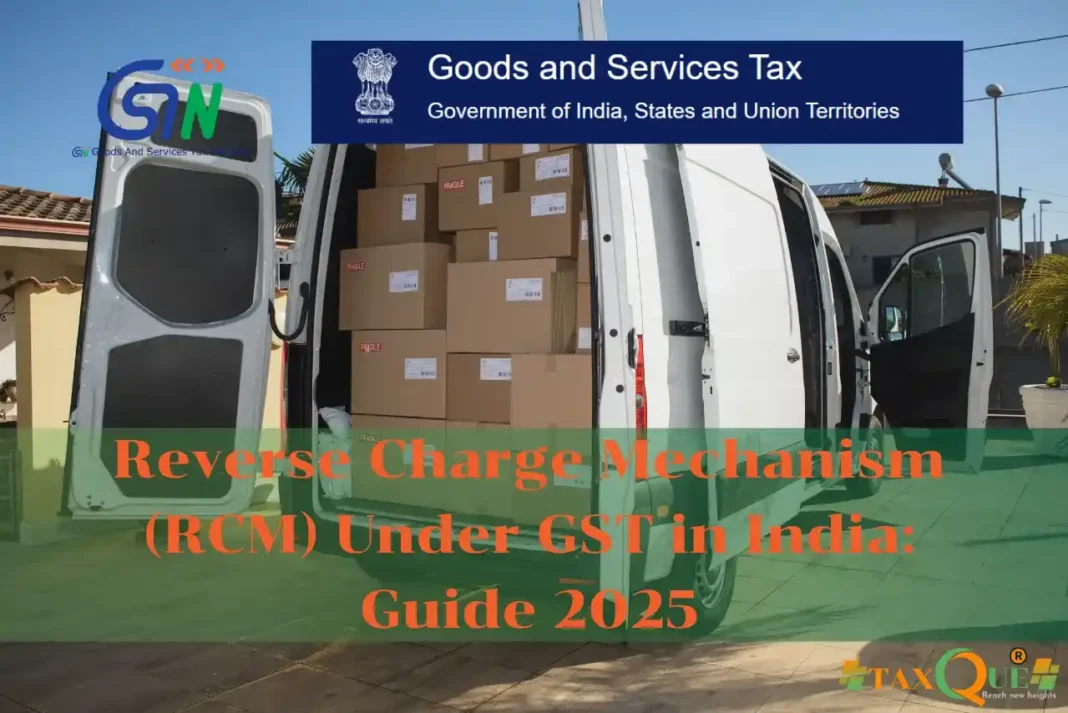Introduction
Understanding GST on cement is vital for businesses and consumers in India navigating the Goods and Services Tax (GST) regime, effective since July 1, 2017. As a critical construction material, cement attracts a high GST rate, impacting infrastructure and housing costs in cities like Patna, Bangalore, and Hyderabad. This blog provides a comprehensive guide on GST on cement in 2025, detailing rates, HSN codes, compliance requirements, and its effect on the construction industry, and highlights how TaxQue simplifies GST processes for businesses during company registration or operations as of June 3, 2025.
What Is GST on Cement?
GST on cement refers to the tax levied under India’s GST framework on the supply of cement, a key construction material classified under the CGST Act, 2017. GST replaced a complex pre-GST tax structure (excise duty of 12.5%, ₹125 per metric tonne, VAT of 14.5%, totaling ~31%) with a unified rate, administered by the GST Council. The current 28% rate, one of the highest slabs, applies to all cement types, affecting pricing, compliance, and input tax credit (ITC) eligibility for businesses in construction or real estate, especially during company registration in Patna or Bangalore.
GST Rates and HSN Codes for Cement
Below is a table summarizing GST on cement rates and HSN codes for 2025:
| Cement Type | GST Rate | HSN Code | Details |
|---|---|---|---|
| Portland Cement | 28% | 2523 | Includes grey, white, and colored Portland cement (e.g., Ambuja, JK). Intra-state: 14% CGST + 14% SGST; Inter-state: 28% IGST. |
| Aluminous Cement | 28% | 2523 | High-alumina cement for specialized construction. |
| Slag Cement | 28% | 2523 | Used in industrial structures. |
| Super Sulphate Cement | 28% | 2523 | Eco-friendly cement variant. |
| White Cement | 28% | 252321 | Decorative and architectural uses. |
| Cement Bricks | 5% | 6810 | Lower rate to support affordable housing. |
- Rate Details: The 28% GST rate applies uniformly to all cement types (e.g., Ultratech, Shree, Dalmia), making it a high-tax commodity. For a 50kg cement bag priced at ₹350, GST is ₹98, totaling ₹448.
- Cement Bricks: Taxed at 5%, reducing costs for specific construction needs.
- No Recent Changes: As of June 3, 2025, the 28% rate persists despite industry calls for reduction to 18%, which could save ₹13,000 crore annually but risks revenue loss.
- Sentiment: X posts highlight public frustration with the 28% rate, comparing cement to luxury goods and urging reductions for affordability.
Compliance and Input Tax Credit (ITC)
GST on cement compliance involves:
- GST Registration: Mandatory for businesses with turnover above ₹40 lakh (goods) or ₹20 lakh (services) in normal states like Bihar, or ₹20 lakh/₹10 lakh in special category states (e.g., Assam, except Jammu & Kashmir at ₹40/20 lakh). Register via the GST portal with state codes (e.g., 29 for Karnataka).
- Invoicing: Invoices must include GSTIN, HSN code (2523 for cement), and GST amount (28%). Intra-state splits into 14% CGST + 14% SGST; inter-state uses 28% IGST.
- ITC Eligibility: Businesses can claim ITC on GST paid for cement used in taxable activities (e.g., commercial construction, ₹98 ITC per ₹350 bag), but not for exempt projects (e.g., residential housing for personal use) under Section 17(5) of CGST Act.
- Returns Filing: Report transactions in GSTR-1 (sales) and GSTR-3B (summary) monthly/quarterly, ensuring correct HSN and state codes.
- Reverse Charge Mechanism (RCM): If cement is purchased from unregistered suppliers, the registered buyer pays 28% GST under RCM, claiming ITC later.
- E-Way Bills: Required for inter-state cement transport above ₹1 lakh, using state codes (e.g., 10 for Bihar).
- Penalties: Non-compliance incurs ₹10,000–₹25,000 fines, 18% interest, or legal action.
Impact on Businesses, Consumers, and the Economy
The GST on cement has reshaped India’s construction sector:
- Construction Costs: The 28% rate, higher than pre-GST ~31%, increases costs (e.g., ₹98 per ₹350 bag), raising housing and infrastructure expenses by ~5–10%. Affordable housing in Patna or Bangalore is particularly affected.
- Business Benefits: Simplified compliance via GSTN and reduced transport costs (fewer checkpoints) improve logistics. Warehouse consolidation enhances efficiency, though ITC restrictions limit savings.
- Consumer Impact: Higher cement prices pass costs to homebuyers, with a ₹50 lakh project seeing ~₹1 lakh in cement GST.
- Economic Dynamics: The 28% rate generates ~₹13,000 crore annually, funding infrastructure, but limits cement demand growth (~550–600 million tonnes by 2025). Industry leaders like JK Lakshmi advocate for an 18% rate to boost consumption.
- Challenges: Cartelization concerns and restricted ITC (e.g., on limestone, coal) hinder affordability, prompting calls for rate rationalization.
TaxQue simplifies GST on cement compliance with expert support for GST registration, ITC claims, and return filing. Visit TaxQue’s GST compliance guide or company registration services for seamless solutions.
FAQs
1. What is the GST rate on cement in India?
The GST on cement is 28% for all types (Portland, slag, white) under HSN 2523, with cement bricks at 5% under HSN 6810.
2. Can businesses claim ITC on cement GST?
Yes, ITC can be claimed on 28% GST paid for cement used in taxable business activities (e.g., commercial construction), but not for exempt projects.
3. Why is GST on cement so high?
The 28% rate, classified as a high-revenue item, generates ~₹13,000 crore annually, though it’s criticized for increasing construction costs.
4. Does RCM apply to cement purchases?
Yes, if bought from unregistered suppliers, registered buyers pay 28% GST under RCM, claiming ITC later.
5. How does TaxQue assist with GST on cement compliance?
TaxQue offers tools for GSTIN verification, RCM compliance, and return filing for cement businesses. Explore TaxQue’s compliance services.
Conclusion
GST on cement in India, at 28% for most types and 5% for cement bricks, significantly impacts construction costs while simplifying compliance compared to pre-GST’s 31%+ tax burden. From Patna to Bangalore, businesses benefit from ITC and logistics efficiencies but face challenges with high rates and restricted credits. As of June 3, 2025, calls for an 18% rate persist to boost affordability. Platforms like TaxQue streamline GST on cement compliance with expert tools for registration, invoicing, and return filing. Stay compliant, optimize ITC, and navigate India’s construction market effectively in 2025.





